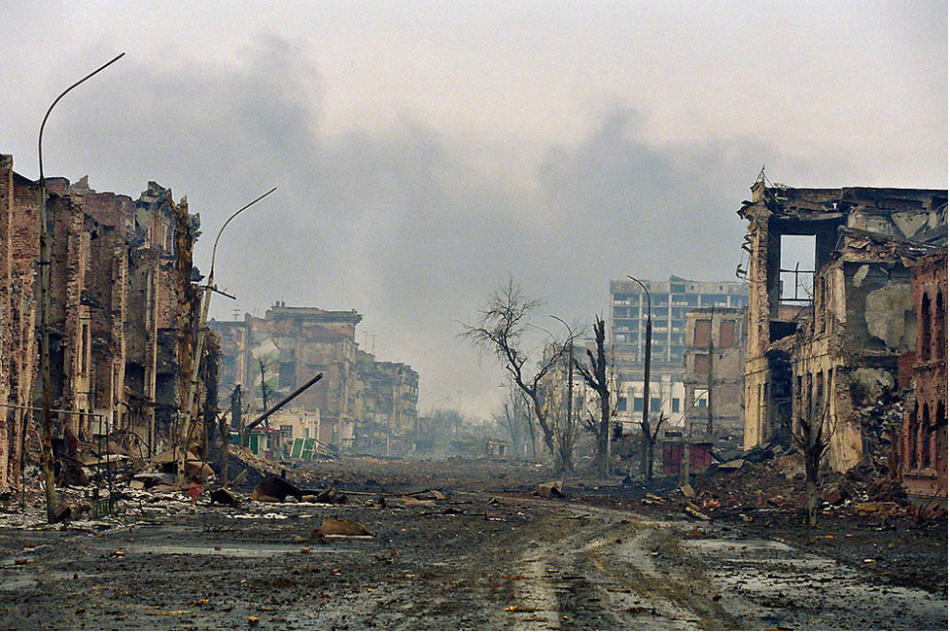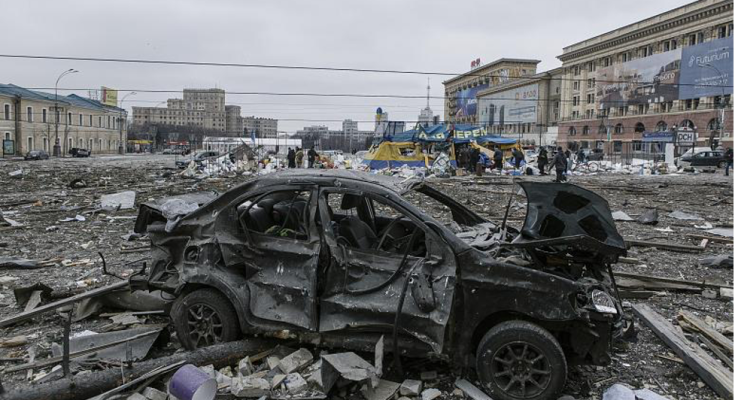Kharkiv, Ukraine 2022 (Pavel Dorogoy/AP)
On February 24, Russia began bombing Ukraine. The Russian authorities prohibited calling it a war – it carries a sentence of 15 years in prison. They came up with the name Special Military Operation. It is a long Russian tradition to invent names for wars. They called the first Chechen war Constitutional order, the second Chechen war a counter-terrorist operation, the invasion of Georgia – Compulsion of peace, and so on. In reality, Russia just started another war.
I, like many of my colleagues and friends, like many Russian politicians and experts, did not believe this was possible. About 3-4 weeks before it all started, we began every leadership lecture with a discussion of the situation in Ukraine. My reasoning basically boiled down to why there would be no war. It seemed to me that it was all a bluff, that the consequences of an invasion would lead to a drop in the Russian president’s rating, that the people of Russia would be against it. I, like a lot of Russians, did not believe that it was possible.
Now, looking back, I wonder why I didn’t believe it was possible. In my lifetime the Russian leaders started several wars. I myself am a victim of two of those wars. When the first Chechen war broke out, I was 13 years old, and when the second war started, I was 18. I have already seen what is happening now in Ukraine. These are the same generals who commanded in my homeplace. The same tanks. I know the terms Russian propaganda uses when describing military action in Ukraine.
“High-precision strikes,” they say, describing the bombing of Ukrainian towns and villages. One of those “high-precision” strikes was the destruction of my house in Grozny. For 5 years we had no gates, we had sheeting instead of glass in the windows, we cooked our food on a stove with wood, and we bought water.

After the start of the war in Ukraine, I again heard the word “zachistka” – clean-up. The Russian army uses this word to describe the process of checking settlements door-to-door, formally to find fighters. For us zachistka was worse than bombing. It was possible to hide from bombing in a basement, but it was impossible to hide from a zachistka. It was during these check-ups that the Russian military brutally killed people, looted and destroyed property. Zachistka is always a lottery. The game of bad cop and good cop. If you were lucky, the Russian military could just check the passports and leave, some even warned you that the “bad guys” would come after us, be ready. When the “bad guys” came, they would leave behind the bodies of civilians. Unfortunately, most of the clean-ups were like that.
When I hear all these words, names, names of equipment, see bombed cities and corpses lying on the streets of Ukraine, I go back to the war. Seemingly long-buried memories resurface. I live in this war again, I can’t bring myself not to watch these videos from Ukraine over and over again. I go back to the war going on in my mind, in my memory. I know it is nothing compared to what Ukrainians are going through right now. I am often ashamed to talk about how I feel, but I can’t not write or think about it either. As I follow the happenings in Ukraine, I realize that the war is never over for me.




